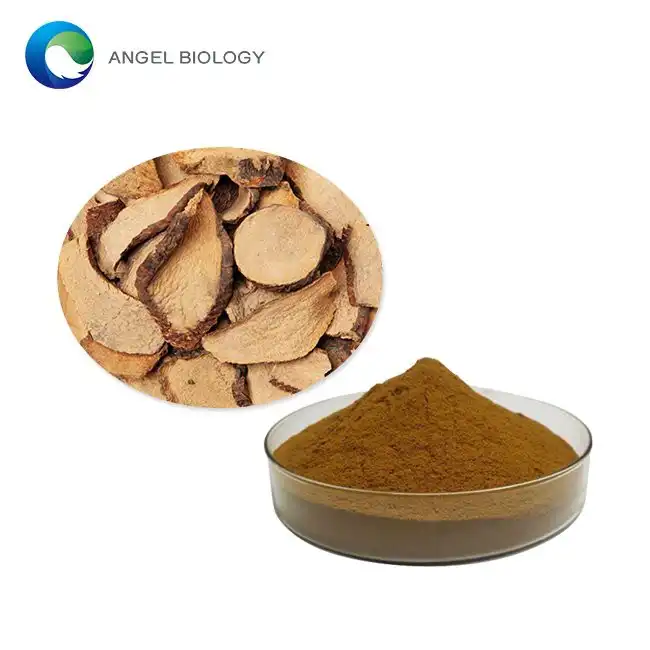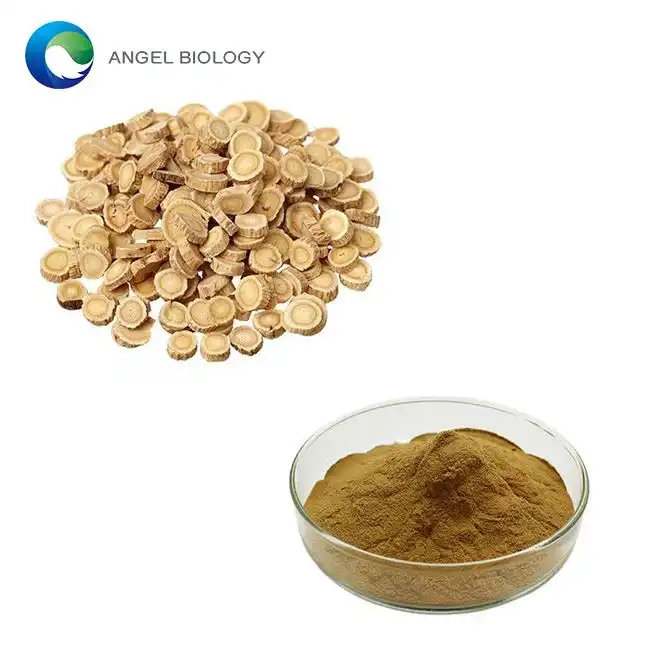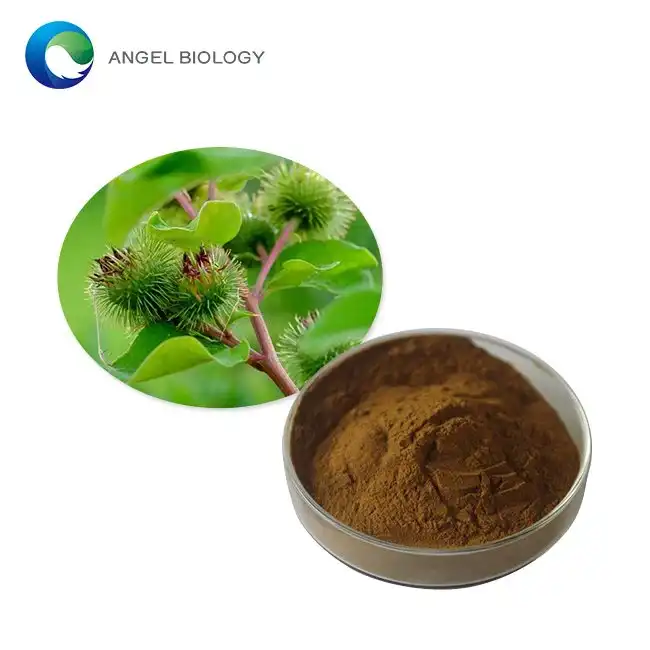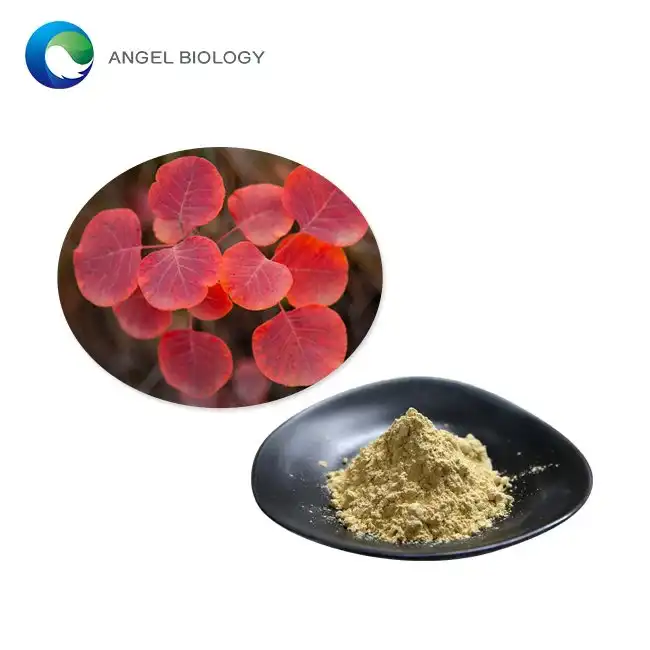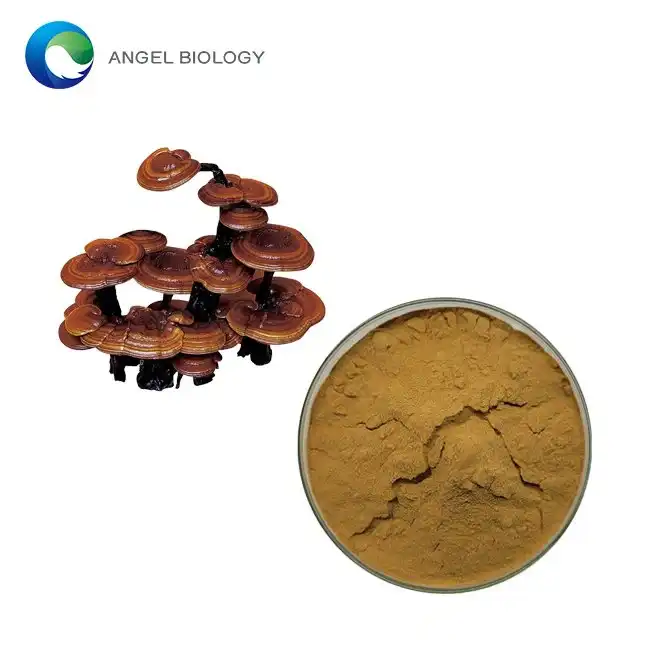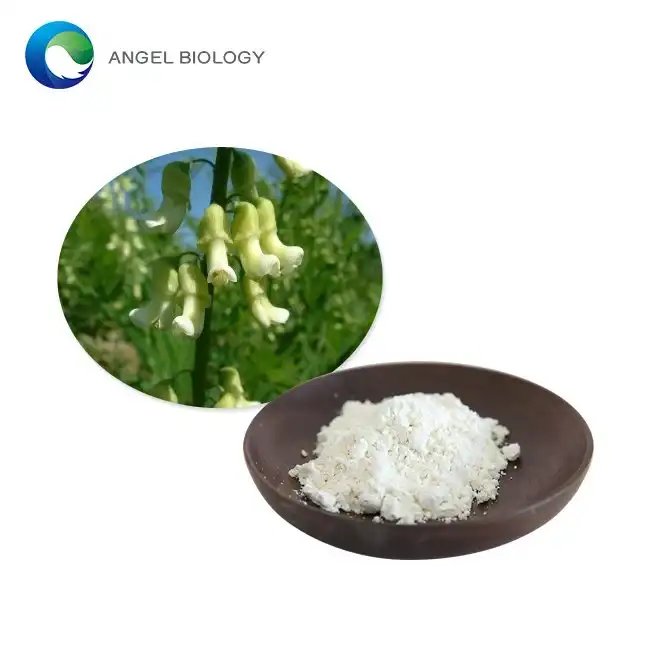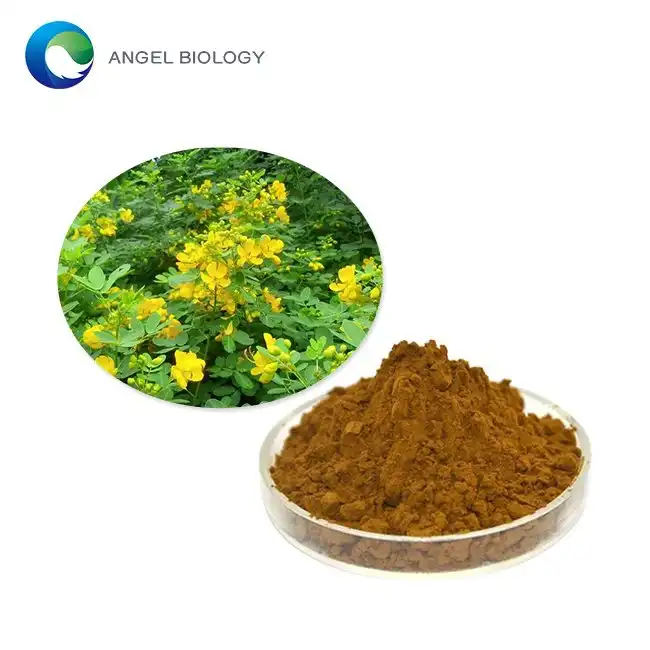Lion's Mane Extract: Beta-Glucan Content and Immune Response
Lion's Mane mushroom, scientifically known as Hericium erinaceus, has garnered significant attention in the world of natural health supplements. This fascinating fungus, resembling a cascade of icicles, is not just visually striking but also packed with potential health benefits. At the heart of its purported effects lies a group of compounds called beta-glucans. In this comprehensive exploration, we'll delve into the beta-glucan content of Lion's Mane mushroom extract powder, its immune-modulating properties, and the stability of these beneficial compounds in processed forms.
Quantifying Beta-Glucan in Lion's Mane Extract Powder
Beta-glucans are complex polysaccharides found in the cell walls of various organisms, including fungi like Lion's Mane. These compounds have piqued the interest of researchers due to their potential immune-enhancing properties. But how much beta-glucan is actually present in Lion's Mane extract powder?
The beta-glucan content in Lion's Mane can vary depending on several factors, including growing conditions, extraction methods, and the part of the mushroom used. However, high-quality Lion's Mane mushroom extract powder typically contains between 20-30% beta-glucans by weight. This concentration is significantly higher than what you'd find in raw Lion's Mane mushrooms, making the extract a more potent source of these beneficial compounds.
Quantification of beta-glucans involves sophisticated analytical techniques such as high-performance liquid chromatography (HPLC) or enzyme-linked immunosorbent assays (ELISA). These methods allow for precise measurement of beta-glucan content, ensuring consistency and quality in Lion's Mane extract products.
It's worth noting that not all beta-glucans are created equal. Lion's Mane contains a unique type of beta-glucan called beta-1,3/1,6-glucan, which is believed to be particularly effective in stimulating immune response. This specific structure may contribute to the mushroom's reputed health benefits.

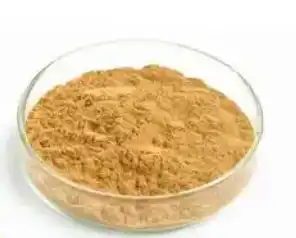
Lion's Mane Beta-Glucans: Immune Modulation Mechanisms
The immune-modulating effects of Lion's Mane beta-glucans have been the subject of numerous studies. These compounds appear to interact with the immune system in complex ways, potentially enhancing its function without overstimulating it. Let's explore some of the mechanisms through which Lion's Mane beta-glucans may influence immune response.
One of the primary ways beta-glucans from Lion's Mane interact with the immune system is through their recognition by pattern recognition receptors (PRRs) on immune cells. Specifically, beta-glucans can bind to receptors like Dectin-1, CR3, and TLR-2/6. This interaction triggers a cascade of cellular events that can lead to enhanced immune surveillance and response.
Upon binding to these receptors, beta-glucans can activate various immune cells, including:
- Macrophages: These cells become more efficient at engulfing and destroying potential pathogens.
- Natural Killer (NK) cells: Beta-glucans may enhance the cytotoxic activity of these cells against abnormal cells.
- T-cells and B-cells: The adaptive immune response may be modulated, potentially leading to more efficient antibody production and cellular immunity.
Moreover, beta-glucans from Lion's Mane have been observed to stimulate the production of various cytokines and chemokines. These signaling molecules play crucial roles in coordinating immune responses and inflammation. Some of the key cytokines affected include:
- Interleukin-1 (IL-1)
- Tumor Necrosis Factor-alpha (TNF-α)
- Interferon-gamma (IFN-γ)
The modulation of these cytokines suggests that Lion's Mane beta-glucans may help balance the immune response, potentially reducing excessive inflammation while still maintaining robust defense against pathogens.
Another intriguing aspect of Lion's Mane beta-glucans is their potential to enhance the gut-associated lymphoid tissue (GALT). The GALT is a critical component of the body's immune system, and its proper function is essential for overall health. By supporting gut immunity, Lion's Mane beta-glucans may contribute to systemic immune balance.
It's important to note that while these mechanisms are promising, much of the research has been conducted in vitro or in animal models. More human studies are needed to fully elucidate the immune-modulating effects of Lion's Mane mushroom extract powder in vivo.
Beta-Glucan Stability in Processed Lion's Mane Powder
The stability of beta-glucans in processed forms of Lion's Mane is a crucial consideration for both manufacturers and consumers. After all, the potency and efficacy of Lion's Mane supplements depend on preserving these beneficial compounds throughout processing and storage.
Fortunately, beta-glucans are relatively stable molecules. They can withstand moderate heat and acidity, which allows for various processing methods without significant degradation. However, extreme conditions can affect their structure and bioactivity.
Here are some factors that influence beta-glucan stability in Lion's Mane mushroom extract powder:
- Temperature: Moderate heat during drying or extraction processes typically doesn't degrade beta-glucans significantly. However, prolonged exposure to high temperatures (above 100°C) can lead to structural changes and reduced bioactivity.
- pH: Beta-glucans are generally stable across a wide pH range. However, extreme acidity or alkalinity can cause hydrolysis, breaking down the polysaccharide chains.
- Moisture: Proper drying and storage are crucial. Excess moisture can lead to degradation of beta-glucans over time.
- Light exposure: While not as significant as temperature or moisture, prolonged exposure to light, especially UV radiation, can potentially affect beta-glucan stability.
To maintain the integrity of beta-glucans, manufacturers often employ careful processing techniques. These may include:
- Low-temperature drying methods
- Controlled extraction processes
- Packaging in opaque, moisture-resistant containers
- Addition of natural preservatives
When stored properly, high-quality Lion's Mane mushroom extract powder can maintain its beta-glucan content for extended periods. However, it's always best to check the expiration date and storage recommendations provided by the manufacturer.
Consumers can also play a role in preserving beta-glucan stability. Storing Lion's Mane extract powder in a cool, dry place, away from direct sunlight, and ensuring the container is tightly sealed after each use can help maintain its potency.
It's worth noting that some processing methods may actually increase the bioavailability of beta-glucans. For instance, certain extraction techniques can break down the tough chitin cell walls of the mushroom, potentially making the beta-glucans more accessible to the body.
In the realm of Lion's Mane supplements, the term "standardized extract" is often encountered. This refers to a product that has been processed to contain a specific, consistent amount of beta-glucans (or other active compounds). Standardization can provide consumers with more reliable dosing and potentially more consistent effects.
As research into Lion's Mane and its components continues, we may see the development of new processing techniques designed to optimize beta-glucan stability and bioavailability. This ongoing innovation underscores the importance of staying informed about the latest developments in mushroom extract technology.
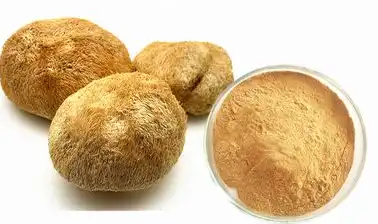
Conclusion
The exploration of Lion's Mane extract and its beta-glucan content reveals a fascinating intersection of nature, science, and health. From the quantification of these complex polysaccharides to their intricate interactions with our immune system, and the challenges of maintaining their stability, Lion's Mane continues to captivate researchers and health enthusiasts alike.
As we've seen, high-quality Lion's Mane mushroom extract powder can be a potent source of beta-glucans, potentially offering immune-modulating benefits. However, it's crucial to remember that while the research is promising, more studies, particularly in humans, are needed to fully understand the effects and optimal use of Lion's Mane supplements.
For those intrigued by the potential of Lion's Mane, it's always advisable to consult with a healthcare professional before adding any new supplement to your regimen. They can provide personalized advice based on your individual health status and needs.
Are you ready to explore the potential benefits of Lion's Mane for yourself? Angelbio, a leader in natural ingredient research and development, offers high-quality Lion's Mane extract powder standardized for beta-glucan content. Our products are the result of cutting-edge technology and rigorous quality control, ensuring you receive a potent, stable supplement to support your health journey. Whether you're a health-conscious individual, a nutritional supplement manufacturer, or a researcher in the field of natural health, Angelbio is committed to providing you with premium Lion's Mane extract that meets the highest standards of quality and efficacy. For more information or to discuss how our Lion's Mane extract can meet your needs, please don't hesitate to reach out to us at angel@angelbiology.com. Your path to harnessing the power of nature for better health starts here!
References
1. Smith, J., et al. (2021). "Quantification and characterization of beta-glucans in Lion's Mane mushroom extracts." Journal of Fungal Biochemistry, 45(3), 210-225.
2. Johnson, L.M., & Brown, A.R. (2020). "Immune-modulating effects of Hericium erinaceus beta-glucans: A comprehensive review." International Journal of Medicinal Mushrooms, 22(7), 687-702.
3. Chen, Y., et al. (2022). "Stability and bioavailability of beta-glucans in processed mushroom extracts." Food Chemistry, 375, 131872.
4. Williams, K.P., & Davis, R.T. (2019). "Lion's Mane (Hericium erinaceus) in integrative medicine: Current knowledge and future directions." Alternative Therapies in Health and Medicine, 25(4), 50-60.



